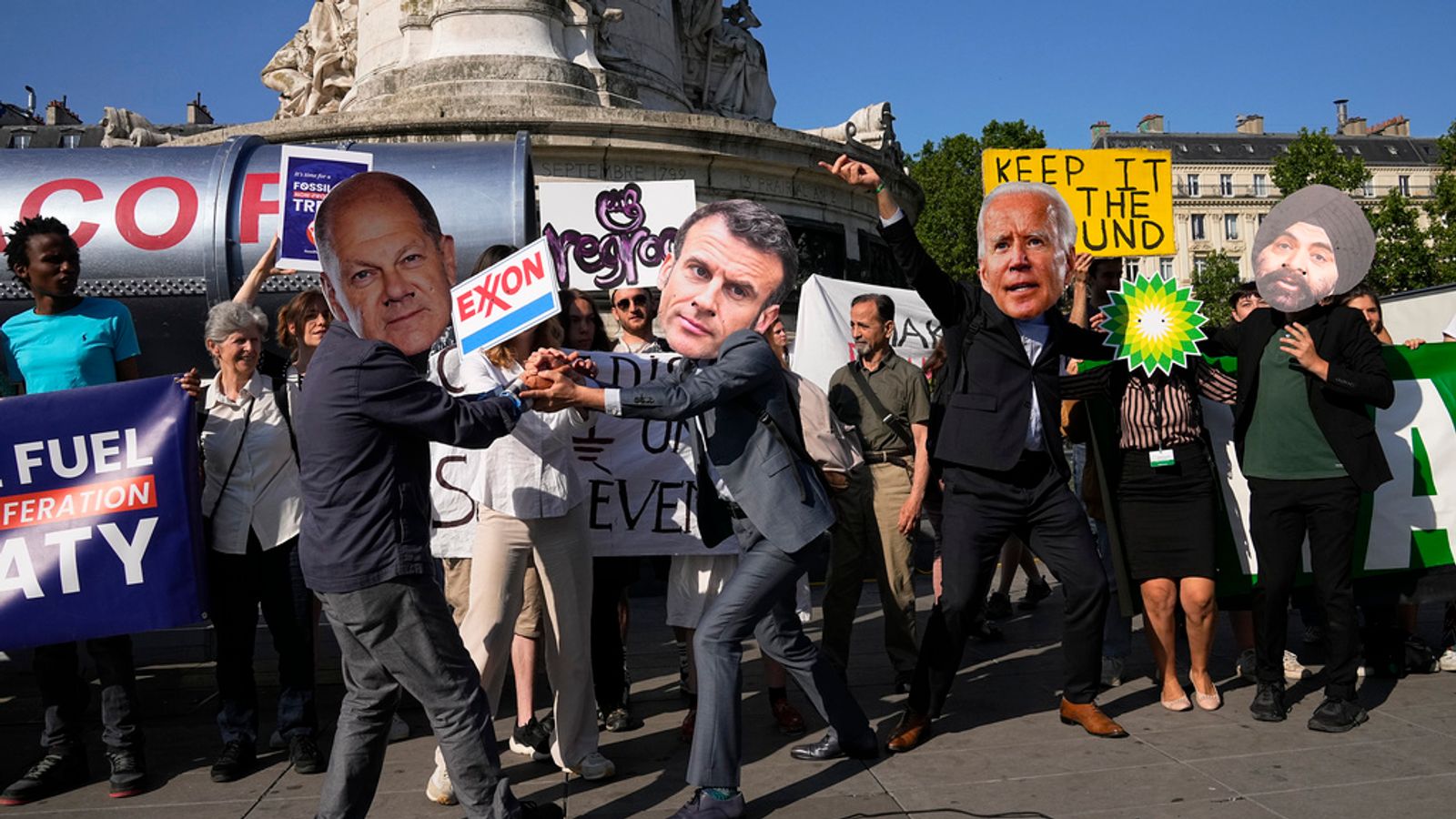President Emmanuel Macron’s climate finance summit in Paris has delivered some progress on a number of headline issues.
More than 40 world leaders and the heads of institutions like the World Bank agreed to pause debt repayments on new loans for vulnerable nations if they are hit by climate-driven disasters.
Leaders agreed that multi-lateral development banks should find an extra $200bn (£158bn) in lending for low-income economies, bolstered by more money from rich nations if necessary and matched by investment from the private sector.
And a long overdue pledge of $100bn (£79bn) for developing countries to deal with the impacts of climate change is finally, delegates were told, within sight.
The two-day summit, led by Barbados Prime Minister Mia Mottley, represented what some called a “surge in solidarity” with those nations most exposed to the effects of a warming world but who did the least to cause it.
Improvement on that front is sorely needed.
Successive UN climate summits, known as COPs, have been haunted by the lack of promised and available cash – each missed opportunity further slowing negotiations and deepening a sense of betrayal.
Warmer weather in Europe could cause more mosquito-borne infections and deaths study says
UK weather: London summers ‘will be as hot as Nice by 2070’ if carbon emissions keep rising, Met Office warns
London-listed SPAC New Energy One in talks about Eni North Sea merger
But while the Paris summit for a New Global Financing Pact was an important political moment, there are big question marks hanging over the headlines and handshakes.
No binding, concrete decisions have been delivered.
A promised consensus on a global shipping levy failed to materialise.
And the sums being talked about won’t even begin to address the scale of the need.
Read more on Sky News:
Heatwaves ‘could lead to more mosquito-borne infections and deaths’
London summers ‘will be as hot as Nice by 2070’
Goal to decarbonise power system ‘jeopardised by lack of plan‘
Campaigner Vanessa Nakate told the assembled leaders, “You must be thinking in trillions, not billions.”
And an Oxfam spokesperson said: “We are deeply disappointed that this summit has failed to provide a response commensurate with the colossal needs of the global south to cope with climate change and provide their populations with essential services such as healthcare.
“While the wealth of the super-rich booms, the lives and livelihoods of the world’s most vulnerable people are battered by crisis after crisis.
“This summit needed to deliver trillions of dollars of new debt-free money for low-and middle-income countries.
“What they got was a rehash of old broken promises and the prospect of more loans that will push the lowest-income nations further towards debt disaster.”









